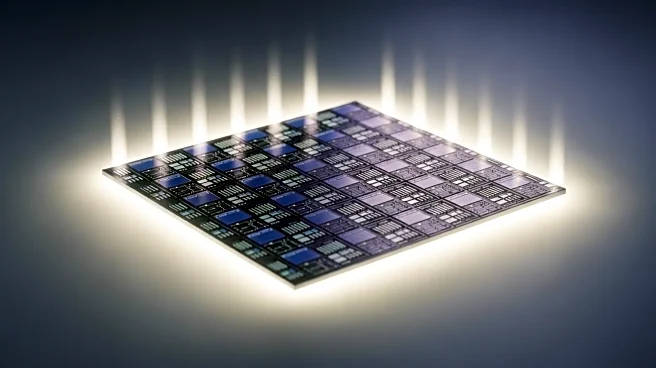What is the story about?
What's Happening?
Intel Foundry is reportedly in discussions to manufacture chips for AMD, according to a report from Semafor. This potential partnership would see AMD utilizing Intel's foundry services for certain components, while continuing to rely on Taiwan Semiconductor Manufacturing Company (TSMC) for its primary CPU and GPU production. The move is seen as a strategic decision by AMD to maintain favorable relations with the U.S. government and potentially avoid tariffs imposed by President Trump. Despite Intel's recent challenges with its 18A node, the company is preparing to launch its 14A node, which could attract interest from major tech companies like Apple and Nvidia. However, AMD is expected to use Intel's foundry primarily for supporting components rather than its cutting-edge hardware.
Why It's Important?
This development is significant as it highlights the shifting dynamics in the semiconductor industry, particularly in the U.S. The potential collaboration between Intel and AMD could strengthen Intel's position in the foundry market, which has been dominated by TSMC. For AMD, diversifying its manufacturing partners could provide strategic advantages, such as mitigating risks associated with geopolitical tensions and supply chain disruptions. Additionally, this move could influence the competitive landscape, as Intel seeks to regain its footing in the semiconductor sector. The partnership may also have implications for U.S. economic policy, as it aligns with efforts to bolster domestic chip production and reduce reliance on foreign manufacturers.
What's Next?
If the partnership proceeds, Intel will need to address its production challenges to meet AMD's requirements. The success of Intel's 14A node will be crucial in attracting and retaining clients like AMD. Meanwhile, AMD will continue to monitor the geopolitical landscape and adjust its manufacturing strategy accordingly. The industry will be watching closely to see how this potential collaboration impacts the market share of TSMC and the overall competitive dynamics in the semiconductor industry.

















